Film noir isn’t all 1940s, black hats, deep shadows, back-stabbing women, desperate criminals, and the hopeless futility of trying to escape one’s fate. It’s mostly that, which is why film noir is such a great genre. But it extends to other decades, other looks, other characters too. The only constant is that certain worldview of inevitability, of unavoidable fate, of running headlong into your own grave. Fun, right? Film noir is about choices. A character makes a choice: to follow that girl, to rob that bank, to have a beer with that old friend. And no matter what follows, they can’t leave the path they’ve set out on. There can only be one ending.
As one writer (alas, can’t remember who) put it, noir can be defined in two words: You’re fucked.
And so! With that cheerful intro, we plunge into this week’s double bill of colorful, brightly lit ‘80s noirs. They might look glossy, but underneath they’re beautifully bleak.
Something Wild (’86)
Director Jonathan Demme has had an unusual career. He started out in the early ‘70s working for Roger Corman and directing such movies as the women-in-prison flick Caged Heat (’74), and by ’92 had won an Oscar for directing The Silence of The Lambs. In between he made among other things the greatest concert movie ever with Talking Heads, Stop Making Sense (’84), the brilliant Spalding Grey monologue-movie Swimming To Cambodia (’87), and Something Wild.
Something Wild starts in classic noir fashion. Charlie Driggs (Jeff Daniels) sneaks out of a coffee shop before paying his bill. Lulu (Melanie Griffith) spots him and follows him out. She’s kind of a nut. Offers him a ride. He gets in her car, and off they go. This is what happens in noirs. You see a girl, and you follow her. From then on out, there’s no escape.
Despite the opening, Something Wild doesn’t seem like a noir. It seems like one of those movies where the wild, fun girl shows the stuck-up businessman how to loosen up and have a good time. Which at first she does, though she’s a little disturbingly manic about it. So he tells her about his wife and kids and normal life, and she pounds Jack Daniels while driving, takes him to a motel, handcuffs him to the bed and fucks him.
Then the movie takes one left turn and another couple after that. No need to go into all of it, in case you’ve yet to see this one. Lulu turns out to be a more nuanced character than we thought, and so too does Charlie. Her past appears in the form of Ray Liotta, always worrisome, and what began as a delightful, comedic romp ends as something much darker. The only thing that mars the full noirish moral universe of the movie is a final scene giving everything a happy ending. They really didn’t need it.
Jonathan Demme’s love of music adds another layer to Something Wild. Kids rap outside a convenience store, a guitar playing hitchhiker leads a version “Wild Thing,” the coffee shop waitress raps out her version of “Wild Thing” under the end credits, The Feelies cover David Bowie’s “Fame” at a high school reunion, and Steve Scales, last seen playing percussion for Talking Heads, shows up as a cashier.
Demme has a lot of fun with cameos and character actors. Tracey Walter, best known as the aliens-are-time-travelers philosopher from Repo Man, is weird as hell as liquor store owner The Country Squire, Charles Napier, leader of the Good Ole Boys band in The Blues Brothers, is an angry chef, and directors John Sayles and John Waters turn up too.
Daniels and Liotta are both at their best. And Melanie Griffith, despite being, let’s be honest, a terrible actress, isn’t bad.
Miami Blues (’90)
Demme didn’t direct this nefarious little flick, it was written and directed by George Armitage, but Demme produced it, and like Something Wild it was shot by cinematographer Tak Fujimoto and edited by Craig McKay, giving it a very similar look and feel.
It’s based on a book by underappreciated writer Charles Willeford, who among other things wrote The Woman Chaser, which was turned into a movie in ‘99 starring Patrick Warburton (I’d love to write it up at length to convince you to see it, only it’s not on DVD. Why? Because the world is run by bastards who don’t want you to see the really good movies).
So anyway, Willeford was great at writing completely amoral protagonists realistically. You read about the crook at the center of Miami Blues, Freddie “Junior” Frenger, and you understand the logical basis of his actions, however demented and horrible that logic is.
Alec Baldwin is Junior. His best role ever? It’s gotta be. He flies into Miami, breaks a Hare Krishna’s finger, and begins a minor crime spree. Unluckily for him, the Krishna dies of shock, so the cops are after him, in particular one Hoke Mosely (Fred Ward).
Junior meets Susie, a young, not at all bright prostitute played by Jennifer Jason Leigh, who couldn’t be better. It’s not an easy part, playing dumb both believeably and sympathetically. She’s the heart of the movie. Before you know it they’re a couple.
And from there, trouble ensues, as it does in noirs. Junior knows where he’s going to end up and so do we. Hell, the movie opens with the song “Spirit In The Sky,” the opening lines of which are, “When I die and they lay me to rest…”
A number of character actors from Something Wild show up, including Napier and Kenneth Utt as the head Krishna, who played Dad in Something Wild. Also making a brief appearance is Paul Gleason, who brought a certain something to every ’80s movie he turned up in.
It’s a dark and funny movie and because of Leigh it even manages to be kind of touching at the end. She’s just so damn honestly sincere and gullible. The interwebs tell me that her character was the inspiration for the chubby kid in Bad Santa, which kid even wears a shirt seen in Miami Blues, one reading: Shit Happens When You Party Naked.
And when you party naked with noir, shit always happens, even in the ’80s.

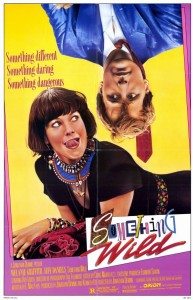
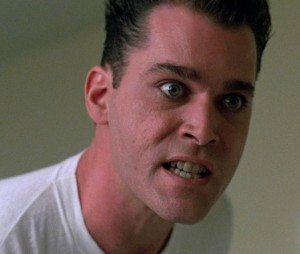
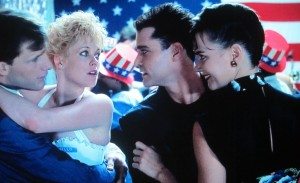
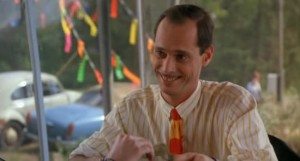
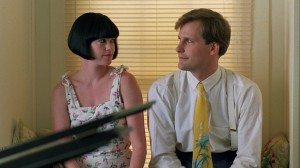
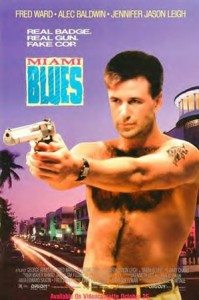

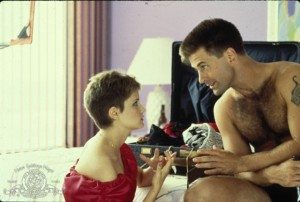
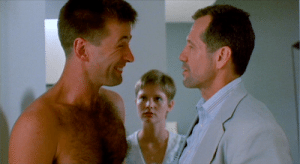
Breaking, Entering,
The dark and lonely place … s,
Finding a big gun …
i just read Willeford’s book for the first time, which includes references to some haiku. but the ones junior comes up with in the movie are originals.
Okay, fine. I’ll re-watch these two very good movies. Jeez. Get off my back!
I feel you neglected to praise Fred Ward and his teeth, both of which are also good in Miami Blues.
A terrible oversight. Fred Ward is excellent. So are his teeth.